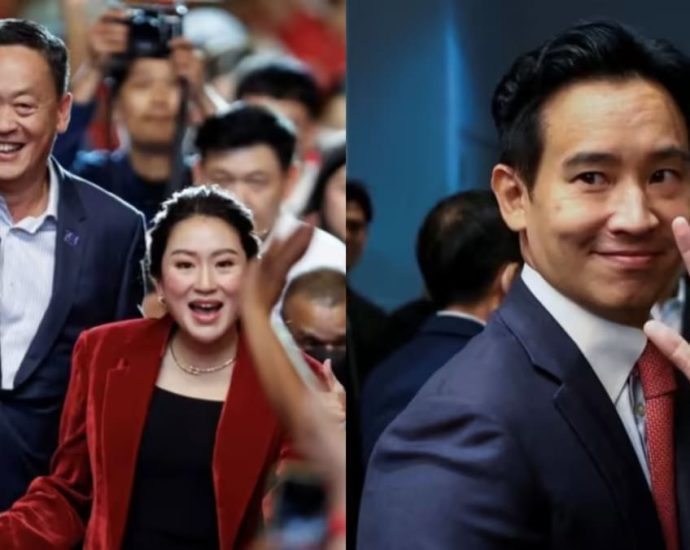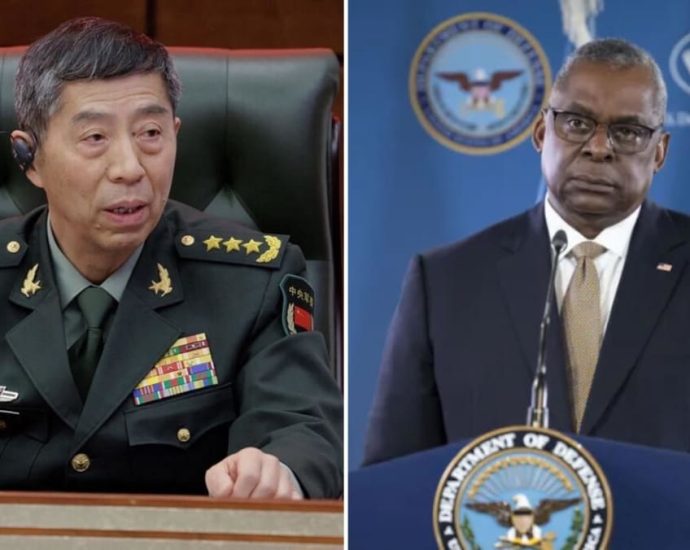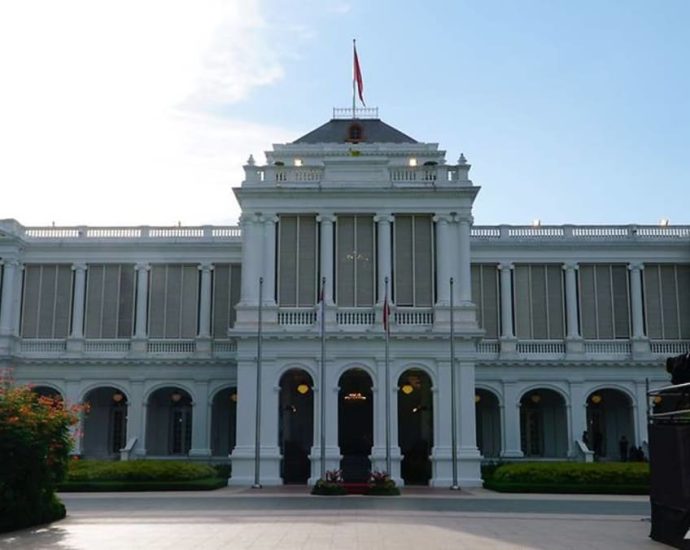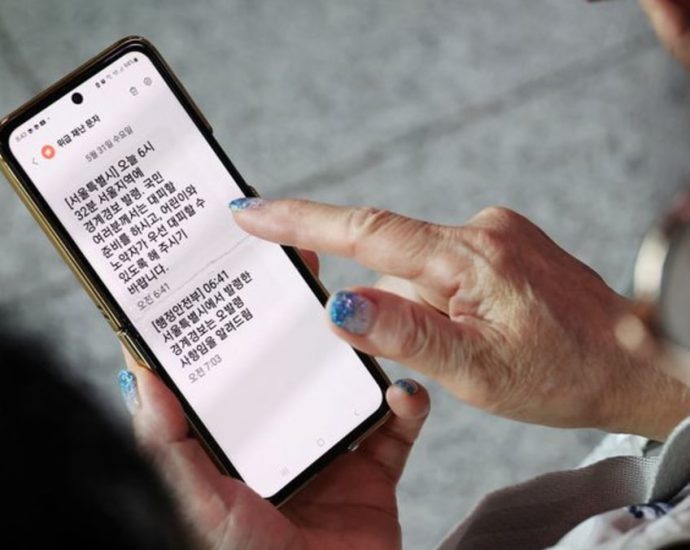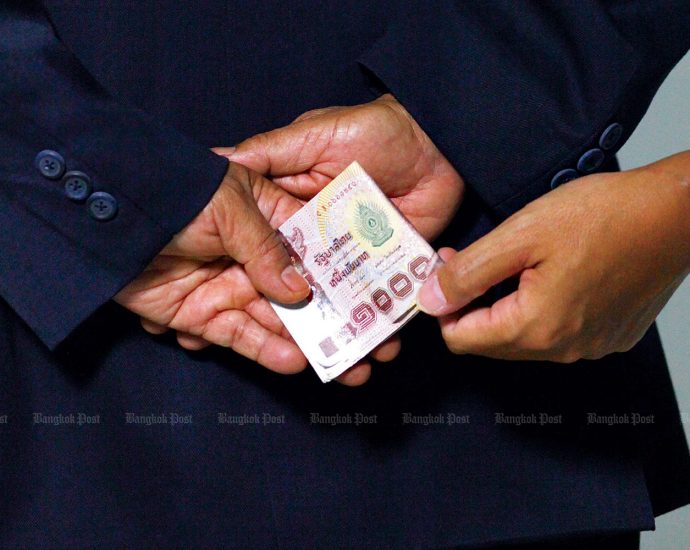MFP urged to end graft in logistics

Lorry operators called on the Move Forward Party (MFP) to stamp out bribery in the transport sector on Thursday, saying the practice has been around for about two decades.
Land Transport Federation of Thailand (LTFT) chairman, Apichart Prairungruang, on Thursday led 30 representatives from logistics companies in submitting a petition to MFP MP-elect Wiroj Lakkhanaadisorn, calling on the party to act swiftly to end the racket.
According to Mr Apichart, kickbacks to highway police add to their operating costs. He said LTFT members have tried to raise the issue in the past, but they were met with intimidation instead.
Out of the 1.5 million lorry operators registered with the Department of Land Transport (DLT), the LTFT estimated around 200,000 regularly pay bribes so their trucks can carry loads beyond the legal limit, he continued, though he insisted none of the LTFT’s 400,000 members engage in such a practice.
He said the bribes range from 3,000-15,000 baht, depending on the load amount an operator wishes to put on a truck. He added those who have paid for a “premium” package can carry anything without a weight limit.
“In the past, there were four to five stickers. Now there are 40-50 stickers,” he said.
Mr Apichart said the MFP’s campaign against the bribes had given the federation hope that the issue would be dealt with seriously.
Shortly after the MFP raised the issue, the Royal Thai Police transferred Pol Maj Gen Ekkaraj Limsangkat, commander of the Highway Police Division, to an inactive post at the Operations Centre of the Central Investigation Bureau (CIB).
However, Mr Apichart said it would take more than that to stamp out the practice, as it is a deep-rooted problem.
Mr Wiroj said the public’s attention is currently on the highway police, but local traffic police are also involved in the racket.
He said the party would gather more information and submit the findings to the Office of the Inspector-General of the Royal Thai Police (RTP) and the police’s anti-corruption division.
Earlier, Mr Wiroj claimed that overloaded trucks with special stickers on their windscreens are not required to stop at weighing stations. The stickers indicate a bribe has been paid.
Commentary: A dark horse could become Thai prime minister
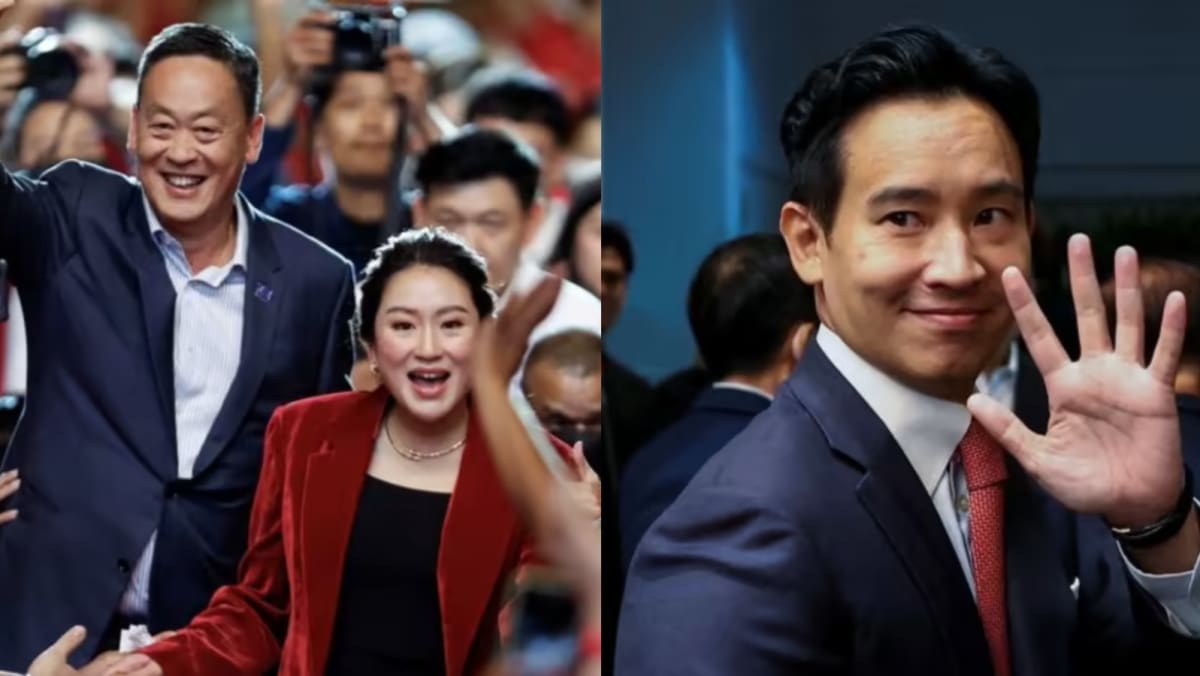
However, unlike the Move Forward Party, which has rejected the possibility of working with parties previously aligned with the military, Pheu Thai has options, including forming a coalition with other parties such as Bhumjaithai (71 MPs), the Democrat Party (25 MPs), Chatthaipattana (10 MPs), or even Palang Pracharath (40 MPs).
In the event that Pita’s premiership bid is unsuccessful or the proposed Move Forward Party-led coalition collapses, Pheu Thai may seize the opportunity to propose one of its three candidates for the premiership. These include Thaksin’s youngest daughter Paetongtarn Shinawatra, real estate tycoon Srettha Thavisin, or former attorney-general Chaikasem Nitisiri.
Among these contenders, Srettha, a former CEO of Sansiri, one of Thailand’s largest real estate developers, and a member of an elite family, stands out as a promising frontrunner due to his broad acceptability, potentially even by the Senate.
Although Srettha has long been associated with the Shinawatra family, particularly former prime minister Yingluck, his foray into politics only began formally when he assumed the role of chief advisor to Paetongtarn. Upon announcing his candidacy for the premiership, Srettha became the face of the Pheu Thai Party’s economic policies, including the controversial 10,000 baht digital wallet policy.
SRETTHA THAVISIN’S COMMITMENT TO PHEU THAI
Srettha’s unwavering commitment as the Pheu Thai candidate for prime minister is evident. He has transferred his shares in Sansiri to his daughter and resigned from all his positions at the company. Sansiri, which is listed on the Stock Exchange of Thailand, has a market capitalisation of 27.4 billion baht (US$790 million).
Commentary: Deciphering China’s mixed messages on US engagement after rejecting meeting between defence chiefs in Singapore
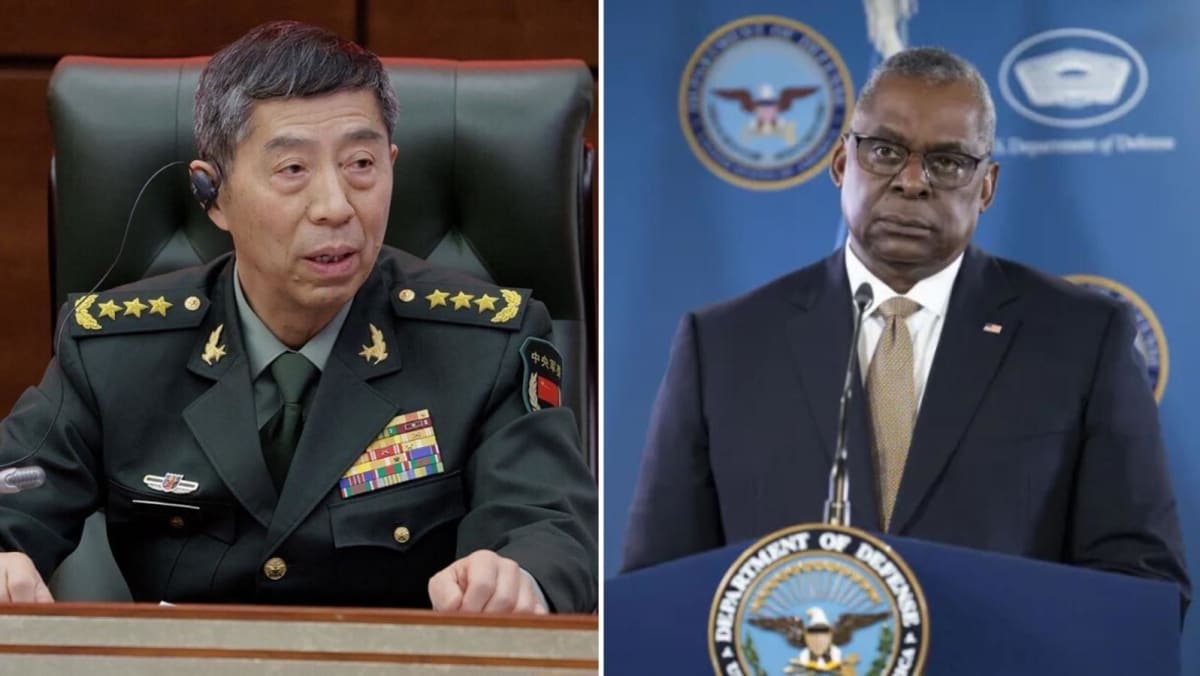
But there has been communication through different channels recently. On May 8, Chinese Foreign Minister Qin Gang met with US ambassador to China Nicholas Burns, suggesting the “pressing task is to stabilise the China-US relationship”.
Burns then met Chinese Minister of Commerce Wang Wentao on May 11, who subsequently went on to meet US Commerce Secretary Gina Raimondo on May 25 for “candid and substantive discussions” on the commercial relationship, according to the US readout.
The Wang-Raimondo meeting was the first Cabinet-level link-up since the balloon incident, but an arguably higher-level meeting was held on May 10 to 11 in Vienna between US National Security Advisor Jake Sullivan and Politburo member Wang Yi, China’s senior-most diplomat. This meeting was a small step down from the Beijing trip US secretary of state Antony Blinken had planned in February and cancelled after the balloon incident, but still represented a willingness to engage at a senior level.
BUTTER, NOT GUNS
The series of meetings seemed to indicate a burgeoning rapprochement between the US and China. With both countries harbouring economic concerns, in the US as the inflationary fallout from the Ukraine war translates into higher interest rates and a possible recession, and in China as its post-COVID recovery sputters, greater communication seemed mutually beneficial.
But with China then rejecting an Austin-Li meeting, and not yet agreeing to a call between President Xi and President Biden despite weeks of Washington’s requests, a limit to re-engagement appears to have been reached.
In truth, there are specific circumstances preventing an Austin-Li meeting. The US has maintained sanctions against Li since 2018 under the Countering America’s Adversaries Through Sanctions Act given Li’s role in procuring Russian military equipment. For Beijing, the sanctions on Li are an unacceptable background to any meeting, while Washington has thus far refused to remove them.
Timeline: What to expect in the event of a contested Presidential Election
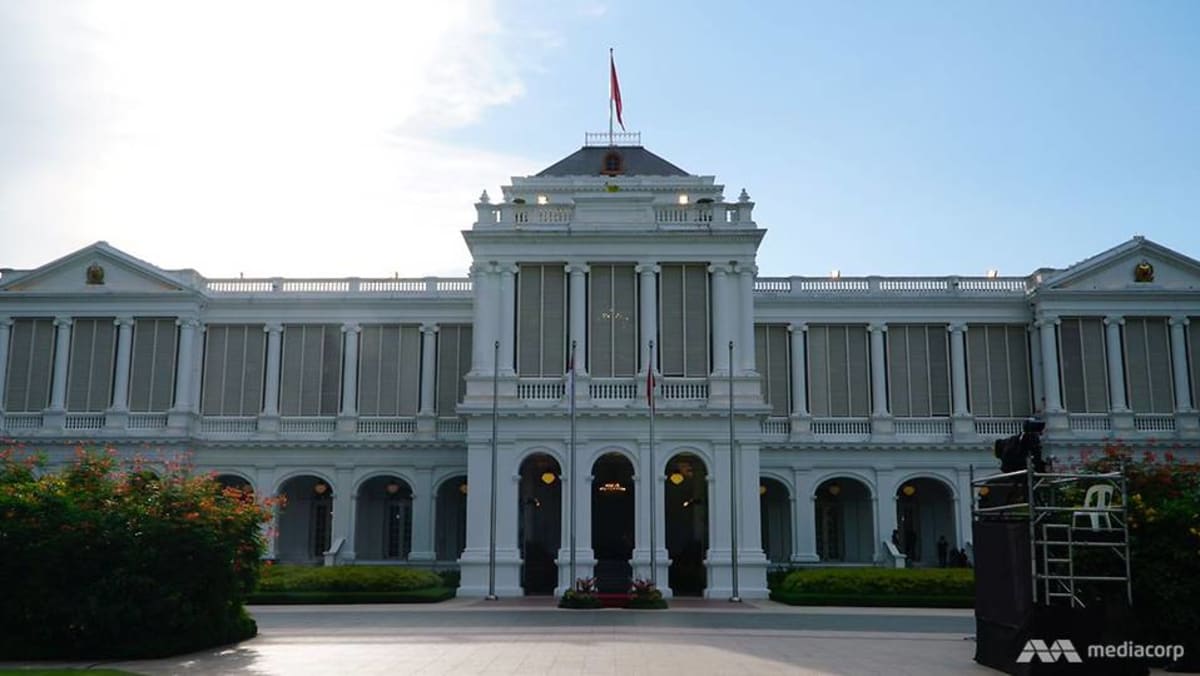
Here’s a look at what we might expect based on the 2011 Presidential Election, when it was last contested:
QUALIFYING TO RUN
Not everyone can run for President. Before nominations, potential candidates first need to pass the Presidential Elections Committee (PEC) by submitting forms to apply for a Certificate of Eligibility.
The strict criteria that presidential hopefuls must meet include having held a senior public office or helmed a company that has at least S$500 million (US$370 million) in shareholders’ equity for at least three years.
These are listed in the Constitution of Singapore, including a clause that says the PEC has to be satisfied the potential candidate is a person of integrity, good character and reputation. The contender must also be at least 45 years old, and not belong to any political party.
In 2011, the Certificate of Eligibility forms were available from Jun 1.
WRIT OF ELECTION
The race officially kicks off when the Writ of Election is issued, and aspiring candidates have three days from then to apply for the Certificate of Eligibility.
In 2011, Prime Minister Lee Hsien Loong issued the Writ on Aug 3 and Nomination Day was set on Aug 17.
The PEC announced the potential candidates’ eligibility on Aug 11 and four met the threshold, out of six who had applied.
BMA probes public works ‘extortion’

The Bangkok Metropolitan Administration (BMA) is looking into a claim that a public works official extorted 300,000 baht from a contractor, a source said.
The source said the issue was raised by Bangkok governor Chadchart Sittipunt at a meeting of executives from the BMA’s 50 district offices on Thursday.
During the meeting, he referred to complaints about a lack of transparency among BMA officials as he stressed the need for all district office directors to take a proactive approach in dealing with the problem, the source said.
Mr Chadchart said he had received a complaint about a public works official demanding a kickback of 300,000 baht from a contractor who applied for a construction licence, the source said. The source added that the contractor was a friend of Mr Chadchart.
“I know the identity of the official. There is also a photo taken as evidence, and it was sent to relevant officials to investigate.
“The issue must be dealt with decisively. The district office director [who is the official’s superior] cannot dodge responsibility and must take action,” the source quoted Mr Chadchart as saying.
There are still several cases involving BMA officials extorting money from contractors applying for licences in other districts that need to be dealt with, the governor was quoted as saying.
The source added that the official works at the Pathumwan district office and demanded a kickback of 300,000-350,000 baht from the contractor.
The contractor refused to pay, insisting that he had followed procedures properly and brought the matter to the attention of the Bangkok governor, the source said.
Women lead Indian families as men migrate
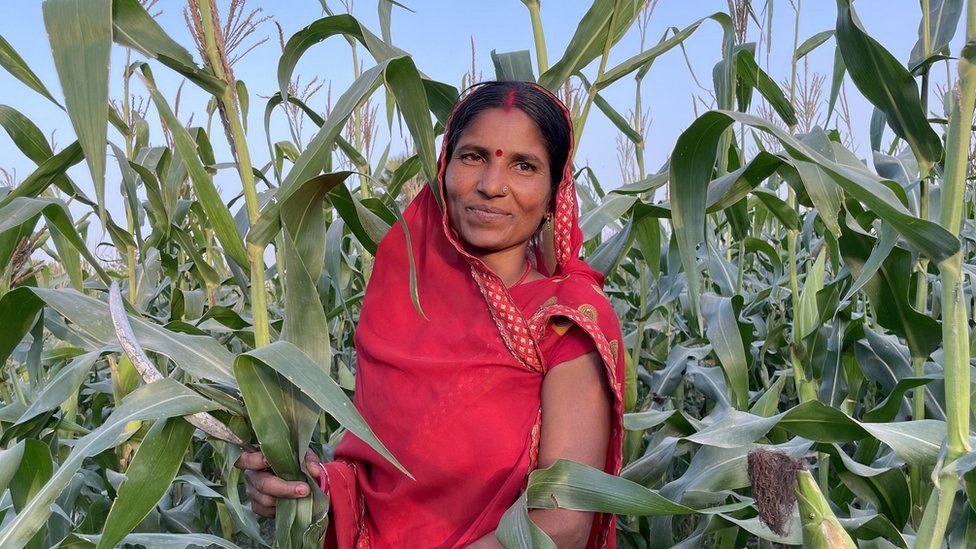 Prem Boominathan
Prem Boominathan“Everyone now knows me by my name,” said Usha Devi, sitting in her modest home in Bihar, one of India’s poorest states.
“Identity is not a small thing,” the 38-year-old persisted. “Earlier only men were known by their names, now women are identified by their names too.”
Usha Devi was made to quit school and marry at the age of 15. Forced into repeated pregnancies in the family’s desire for a son, she had little control over anything in her life.
After her husband had to migrate in search of work, the mother to three daughters and a son rose to take charge of the house and their children’s lives. She moved out of her in-laws’ home into a separate house in the same village. She now earns money and takes all decisions for the family and is considered the head of her household.
The United Nations says there is no fixed definition for women-headed households but they are often defined as homes where either no adult men are present or they do not contribute to the household income.
Economists and demographers understand the term head of the household to refer to someone who earns money and has authority to take decisions in the family. In case of married women, when husbands migrate and do not live at home for six months or more, women are counted as the head of household. These are often self declared.
It’s a story repeating itself across villages and small towns of India where distress-related migration by men is leading to an opportunity for women.
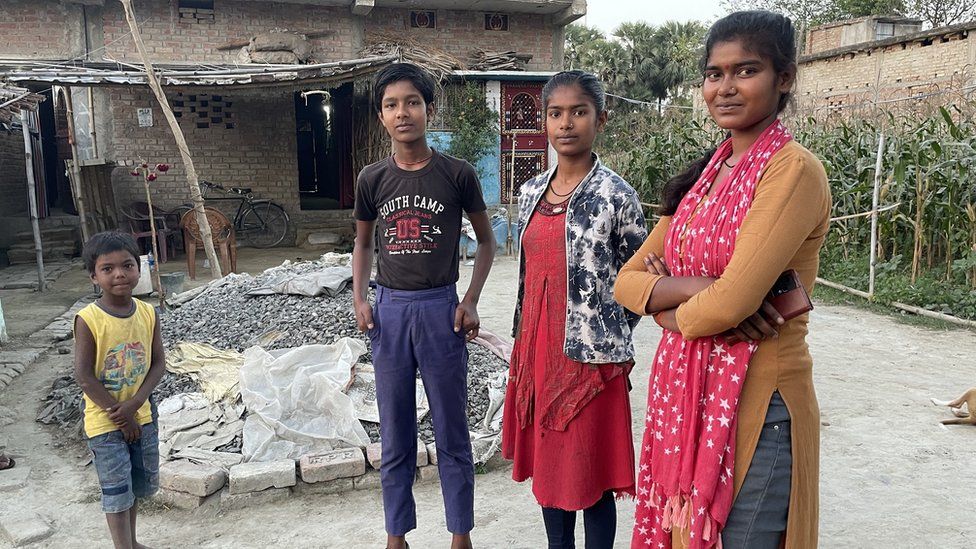
Sociologist and demographer Professor Sonalde Desai says this opportunity hinges on the wife’s ability to move out of her husband’s family home where she may remain dependent on other male members like her father-in-law and brothers-in-law.
“In cases where a woman is able to establish an independent household by herself, we see a real change in her ability to make decisions, her likelihood of taking care of some financial responsibilities, even managing and running the farm,” Prof Desai says.
Over the past three decades, the proportion of households headed by women has almost doubled, data from the National Family Health Survey shows.
A big contributor to this change in the patriarchal family set-up is internal migration, which has shown a rising trend.
India’s last census in 2011 counted 450 million internal migrants. This was an increase of 45% over the last decade, a rate much higher than the population growth rate (18%) in the same period.
Faced with Covid-19 induced poverty and shrinking employment opportunities, Prof Desai predicts this trend will only increase in the coming years.
Independent and confident, Usha Devi is now a leader amongst women in her village.
Her job as the head of a self-help group involves enrolling women into a government scheme that gives easy loans to poor women.
The group meets every week, collecting small contributions of 10 rupees ($0.12; £0.09) each to build a small corpus, often visiting the bank to deposit it and make requests for loans, and making financial decisions like lending small sums of money from the corpus for emergencies.
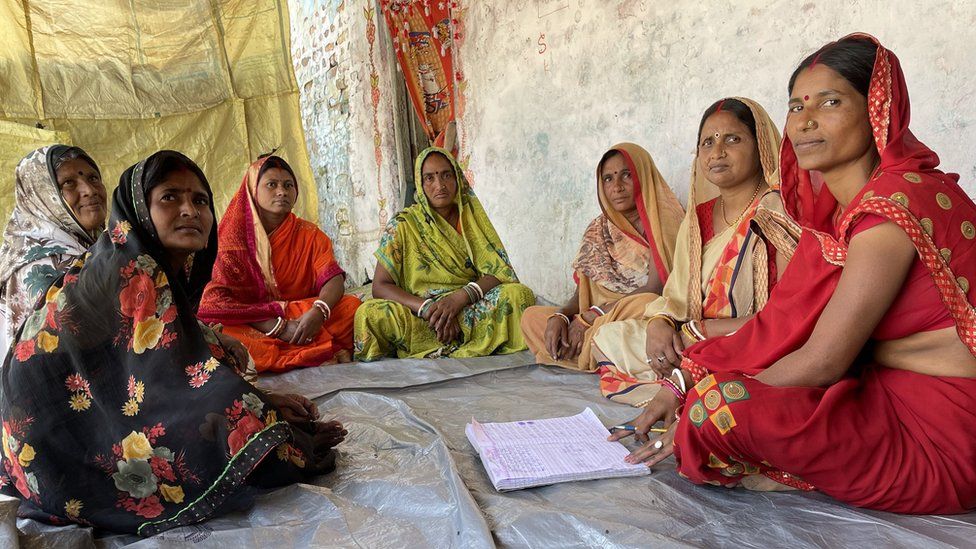
At a meeting I attended, there was disagreement and laughter in equal measure. The bonhomie of an informal support network, independent of their menfolk and families.
“Now we all know each other by name. And with the help of the more literate members, I have learnt to write my name and manage financial transactions,” says Munni Devi.
Shobha Devi is one of those more literate group members. She also had an early marriage but was able to complete her education later and often takes over in Usha’s absence.
“The money my husband sends is often not enough, so we help each other through thick and thin,” she says.
“Since I know how to manage money, I also have a greater say in spending decisions now.”
Shobha Devi is part of a growing tribe of women who are more educated than their husbands.
According to the India Human Development Survey, among couples who got married in the 1980s, only 5% of women were more educated than their husbands. This rose to 20% for those in the 2000s and the 2010s.
“If we understand headship [head of family] not simply as who the biggest earner is but also as someone who is capable of making decisions, I suspect increasing power may be moving towards these more educated women,” Prof Desai explains.
When Usha Devi began earning 11 years ago, she invested in her studies and acquired a college degree. In 2012, she began working with a non-governmental organisation, going door-to-door collecting health data of mothers and infants.
She began running the self-help group in 2016, a decision supported by her husband, Ranjeet who dropped out of school when he was 10. He says he only realised that was a mistake when he saw how “smart” his wife was.
“If my wife hadn’t educated herself, my children would have turned out like me. She is the reason they may have a chance for a better future,” he says.
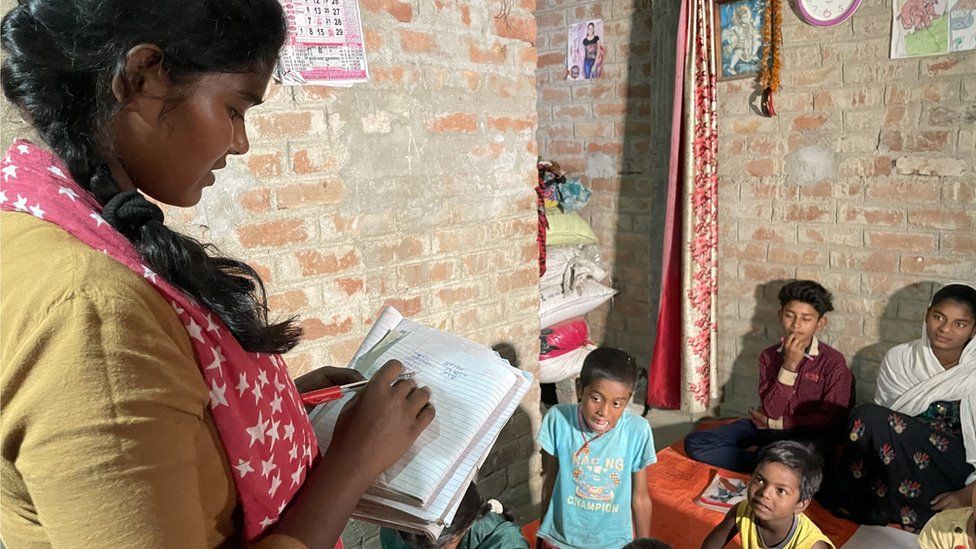
It’s a rare confession from a man brought up in a country steeped in traditional gender roles. In some ways, migration makes it inevitable that men loosen the control and rely more on their wives.
Ranjeet struggled for work in his village where there were few skilled jobs and none that he was qualified for. So he is proud that he can provide for his family by working in a factory that manufactures ropes in the southern state of Tamil Nadu.
Despite their increased autonomy at home, Usha Devi, Shobha Devi and the other women I spoke with still saw themselves as second to their husbands.
“I am not great, it’s him. If he hadn’t supported me, I would have never moved ahead,” says Usha Devi.
But for many young women, including her daughter Rashmi, she has become a role model.
“I saw my mother change and thought I could also become like her.”
Rashmi takes tuition classes to supplement the household income and dreams of saving enough to train and become a policewoman.
It’s not just a career goal but an example she wants to set for people, just like her mother.
“Villagers should not feel that only boys can run a household,” she says. “Girls can do it too – if only they are brought up that way and allowed more freedom.
BBC News India is now on YouTube. Click here to subscribe and watch our documentaries, explainers and features.

Read more India stories from the BBC:

Related Topics
Pheu Thai shelves digital cash plan

Pheu Thai’s digital wallet scheme will be shelved for the time being to make way for the social welfare policies of the Move Forward Party (MFP), according to the party’s secretary-general, Paopoom Rojanasakul.
Speaking after a meeting of the party’s economic team yesterday, Mr Paopoom said while the country would still benefit from further economic stimulus, the scheme, which would cost 560 billion baht, will be put on hold.
The decision was taken to allow the MFP to make good on its promises to improve social welfare through policies which analysts have estimated would cost around the same as Pheu Thai’s digital wallet scheme, he said.
The MFP, which will lead the formation of the coalition government, has vowed to focus on education, children, people with disabilities and retirees.
Mr Paopoom said the meeting also discussed which of the party’s economic policies will be pushed at talks with other coalition partners. These will include tax reforms, measures to boost exports and foreign direct investment, tackle non-performing loans, especially in the SME sector, and other problems relating to ageing society tax reforms.
The party wants to seek new markets for the export sector with a focus on the Middle East and develop products and services to meet market demand better. It also advocates a flexible policy to attract FDI, and there will be no “one size fits all” approach, he said.
With regards to non-performing loans in the SME sector, Mr Paopoom said defaults are on the rise and measures are needed to tackle the problems before they worsen.
He said the team debated ways to find new sources of revenue to offset expenditures which are expected to spike, as well as how to increase efficiency in the agriculture sector and the appropriate minimum wage.
Mr Paopoom said the minimum wage and the establishment of new economic zones would be raised at a June 6 meeting with prospective coalition partners.
He declined to comment on the MFP’s economic policies, which have come under criticism as they would result in higher taxes, saying every policy has its advantages and disadvantages.
US calls for UN meeting on North Korea’s attempted satellite launch
The United States has called for a UN Security Council meeting on Friday (Jun 2) to discuss North Korea’s attempted satellite launch this week, the spokesperson for the US mission to the United Nations said. The launch on Wednesday was an attempt by North Korea to put its first spyContinue Reading
Two grocers were proxies for Chinese fraudsters

Police have found that two grocers in Bangkok acted as directors of 48 shell companies linked to a Chinese couple facing charges of running a 10-billion-baht international fraud scheme.
The two grocers, who had shops in Thon Buri, were paid 4,000 baht a month for each company they represented, said Pol Maj Gen Amnat Traipote, deputy commissioner of the Cyber Crime Investigation Bureau (CCIB).
The companies were legally registered with the Department of Business Development to engage in tour guide services, brokerage, wholesale, holding and property trade.
Thai shareholders held 51% of each company, and Chinese nationals the rest. The businesses each had 5 million baht in registered capital and were all headquartered at houses in the same luxury housing estate in Prawet district where the Chinese couple were arrested on Wednesday.
Police are now checking the tax records of the companies, Pol Maj Gen Amnat said on Thursday.
Shaoxian Su, 31, and his girlfriend Keyi Ye, 25, were arrested at their 67-million-baht house in The Palazzo Srinakarin estate in Prawet on charges of public fraud and money laundering.
Police say the couple lured people in many countries into fake investments in digital currencies and other assets, with damages estimated at 10 billion baht.
Police suspect companies in their network purchased 19 luxury houses in the same estate in Prawet and leased them out to other Chinese people.
On Wednesday, police impounded hundreds of millions of baht worth of assets from the couple.
Move Forward says ‘no’ to fresh election if Pita is disqualified

The Move Forward Party (MFP) yesterday rejected the idea that a new general election should be held if party leader Pita Limjaroenrat is disqualified from becoming prime minister due to his media shares.
On Wednesday, Deputy Prime Minister Wissanu Krea-ngam responded to questions over the possibility that the Constitutional Court could eventually rule against Mr Pita over his 42,000 shares in iTV, an independent broadcaster founded in the 1990s, thus disqualifying him.
Complaints are calling into question Mr Pita’s status as a member of parliament and future prime minister, with growing speculation the ruling could also disqualify MFP candidates from certification.
Mr Wissanu responded to this by saying there could be a new nationwide general election in such a scenario.
However, MFP MP Rangsiman Rome yesterday said “everything has been arranged” to deal with the iTV shares controversy.
“Everything is well-prepared, and [there is] nothing to worry about,” Mr Rangsiman said. “This is bullying in politics as the opposite side released the [iTV share] news during the election.”
“I’d like to ask Mr Wissanu whether it is his goal to distract and manipulate senators to feel hesitant about supporting the MFP,” Mr Rangsiman added. “If it is, it means he doesn’t respect the decision of the people who exercised their right to vote.”
Chusak Sirinil, deputy leader of the Pheu Thai Party, said a new election is a distant matter as Mr Pita nominated MP candidates for the election in his capacity as party leader, making them unlikely to be affected by the iTV share controversy.
However, Sen Seree Suwanpanon said a new general election might be possible if Mr Pita is disqualified as an MP due to his media shares.
Sen Seree noted a new election should only be held in constituencies where the MFP won to reduce damage to the country.
In other news, government spokesman Anucha Burapachaisri said the caretaker government would continue its duty until a new premier forms a new cabinet, which is slated to be around August.
He said the certification of MPs must be made 60 days after an election before a House Speaker and premier are chosen.


